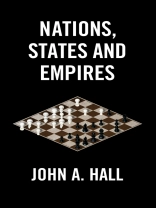In his new book John A. Hall traces the interactions between nations, states and empires in the making of the modern world.
It is commonly assumed that nation states succeeded and replaced empires, relegating empires to the past: Hall argues that this is not the case. Empires have continued alongside nation states, shadowing them and overseeing them in the industrial era. The two world wars were imperial wars, rather than wars between nation states. Even after rapid decolonization in the 1950s and 1960s, empires persisted in the USA and the USSR. Furthermore, empires are not finished: the USA retains enormous power, while Russia and China increasingly show imperial dispositions. Empires and nation states do not exist in separate compartments – rather, they often overlap. Consider the USA – both strongly nationalist and the greatest empire in the history of the world.
This highly original book will be essential reading for students and scholars in sociology and politics and for anyone interested in the political forces that have shaped, and continue to shape, the modern world.
Inhoudsopgave
Introduction
Chapter One: Capstones and Organisms
Chapter Two: The Cut-throat Struggle of Competing Empires
Chapter Three: Stabilities, Fixed and Fleeting
Chapter Four: Fear and Trembling
Conclusion
Over de auteur
John A. Hall is Emeritus James Mc Gill Professor of Sociology at Mc Gill University.












